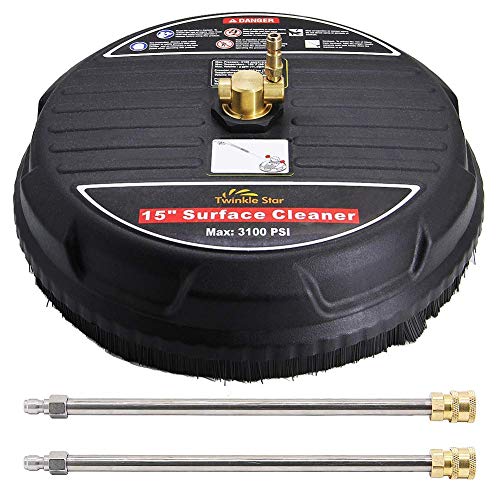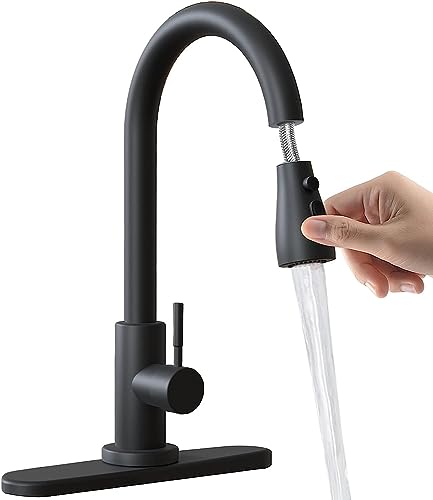Blog
How To Make Your Own Pressure Washer Soap

Having a pressure washer can be a real game-changer when it comes to cleaning tasks around your home. Whether you need to wash your car, remove dirt and grime from your patio or clean your driveway, a pressure washer is a powerful tool that can make these tasks much easier and faster. However, using the right soap is crucial to get the best results.
While there are many commercial pressure washer soaps available, making your own soap can be a more cost-effective and customizable option. By using simple ingredients that you may already have in your home, you can create a homemade pressure washer soap that is effective and safe for use.
Here are a few simple steps to help you make your own pressure washer soap:
- Choose the base ingredients: The base ingredients of your pressure washer soap will typically include water, bleach, and a cleaning agent such as dish soap or laundry detergent. The proportions of the ingredients may vary depending on the cleaning task.
- Mix the ingredients: In a large bucket or container, combine the specified amounts of water, bleach, and cleaning agent. Stir the mixture well to ensure that the ingredients are thoroughly blended.
- Optional additives: If desired, you can enhance the cleaning power of your soap by adding a few optional additives such as vinegar or lemon juice. These natural ingredients can help remove stubborn stains or add a fresh scent to your cleaning solution.
- Test and adjust: Before using your homemade pressure washer soap on a large area, it is a good idea to test it on a small, inconspicuous area to ensure that it does not damage the surface. If necessary, you can adjust the proportions of the ingredients to achieve the desired cleaning strength.
- Start cleaning: Once you have prepared your homemade pressure washer soap and tested it, you can now use it to tackle your cleaning tasks. Apply the soap to the surface using the pressure washer and allow it to sit for a few minutes. Then, use the pressure washer to rinse off the soap and reveal a clean and refreshed surface.
By making your own pressure washer soap, you can save money, customize the cleaning power, and have peace of mind knowing exactly what ingredients are being used. With these simple steps, you’ll be able to make an effective cleaning solution that will help you tackle even the toughest cleaning tasks with ease.
Why Make Your Own Pressure Washer Soap?
Using a pressure washer to clean surfaces can be an effective way to remove dirt, grime, and stains. However, to get the best results, it is important to use the right cleaning solution. While there are many commercial pressure washer soaps available on the market, making your own soap can offer several advantages.
Cost-Effective
Making your own pressure washer soap can be a more budget-friendly option compared to buying commercial products. The ingredients needed to make homemade soap, such as dish soap, baking soda, and vinegar, are often already available in most households. By creating your own soap, you can save money on purchasing expensive cleaning solutions.
Customizable
When making your own pressure washer soap, you have the flexibility to customize the formula according to your specific needs. Different surfaces and types of dirt may require different cleaning solutions. By experimenting with various ingredients, you can create a soap that is tailored to tackle specific stains and grime effectively.
Additionally, you can choose to add essential oils or other scented ingredients to create a pleasant fragrance while cleaning. This customization allows you to have more control over the cleaning process and increase your satisfaction with the end result.
Environmentally Friendly
Many commercial pressure washer soaps contain harsh chemicals that may be harmful to the environment. By making your own soap, you can use natural and eco-friendly ingredients that are less toxic and safer for the environment. Common ingredients like vinegar, lemon juice, and baking soda are biodegradable and pose less risk to plants, animals, and water sources.
Furthermore, homemade pressure washer soap typically produces less waste compared to commercial products that come in plastic bottles. By reducing your consumption of single-use plastic containers, you can contribute to the overall goal of reducing waste and promoting a more sustainable lifestyle.
In conclusion, making your own pressure washer soap offers various benefits including cost-effectiveness, customization, and environmental friendliness. Whether you are looking to save money, achieve better cleaning results, or minimize your environmental impact, creating your own soap is a practical and rewarding approach to pressure washing.
The Benefits of DIY Pressure Washer Soap
When it comes to cleaning your outdoor surfaces, using pressure washer soap can make a big difference in the results you achieve. While there are many commercial options available, making your own DIY pressure washer soap offers several benefits that are worth considering.
- Cost savings: One of the biggest advantages of making your own pressure washer soap is the cost savings. Commercial soaps can be quite expensive, and if you have a large area to clean, the cost can quickly add up. By making your own soap, you can save money and still achieve great results.
- Customization: Another benefit of DIY pressure washer soap is the ability to customize the formula to suit your specific needs. Different surfaces may require different cleaning agents, and by making your own soap, you can easily adjust the ingredients to tackle any cleaning challenge.
- Environmentally friendly: Commercial pressure washer soaps often contain harsh chemicals that can be harmful to the environment. By making your own soap, you have control over the ingredients and can choose environmentally friendly options. This not only benefits the planet but also ensures the safety of your plants and animals.
- Availability: Commercial pressure washer soaps may not always be readily available when you need them. By making your own soap, you don’t have to worry about running out or not being able to find the specific product you need. You can easily mix up a batch whenever you need it.
In conclusion, making your own DIY pressure washer soap offers cost savings, customization options, environmental friendliness, and availability that commercial options may not provide. With a few simple ingredients and some basic knowledge, you can create a soap that will effectively clean your outdoor surfaces while saving you money and protecting the environment.
Ingredients and Recipe for Homemade Pressure Washer Soap
If you’re looking to save money and create your own pressure washer soap, you’re in luck! With just a few simple ingredients, you can make an effective cleaning solution that will leave your surfaces sparkling clean. Here’s what you’ll need:
| Ingredient | Amount |
|---|---|
| Liquid dish soap | 1/2 cup |
| Baking soda | 1/4 cup |
| Vinegar | 1/4 cup |
| Water | 5 gallons |
To make the homemade pressure washer soap, follow these simple steps:
- In a large bucket, combine the liquid dish soap, baking soda, and vinegar.
- Stir the mixture until the ingredients are well combined.
- Add the water to the bucket and stir again.
- Transfer the soap mixture to a clean, empty container that has a nozzle or spray feature.
- Attach the container to your pressure washer and you’re ready to start cleaning!
This homemade pressure washer soap is safe to use on most surfaces, but it’s always a good idea to test it on a small, inconspicuous area first. Avoid using this soap on delicate or painted surfaces, as it may cause damage. With this simple recipe, you can make your own pressure washer soap and tackle any cleaning job with ease!
Questions and answers
What is a pressure washer soap?
A pressure washer soap is a cleaning solution specifically designed for use with a pressure washer. It is a concentrated detergent that is mixed with water to create a powerful cleaning solution that can remove dirt, grime, mold, mildew, and other stubborn stains.
Why should I make my own pressure washer soap?
There are several benefits to making your own pressure washer soap. Firstly, it can be more cost-effective compared to buying pre-made soaps. Additionally, making your own soap gives you the freedom to customize the formula to suit your cleaning needs. You can also avoid harsh chemicals and opt for eco-friendly ingredients.
What ingredients can I use to make my own pressure washer soap?
There are several common ingredients that can be used to make pressure washer soap. These include dish soap, laundry detergent, white vinegar, baking soda, and lemon juice. You can choose a combination of these ingredients based on the type of stains you want to remove and their cleaning properties.
How do I make pressure washer soap using dish soap?
To make pressure washer soap using dish soap, you can mix approximately one part dish soap with ten parts water. Stir the mixture well until the soap is fully dissolved. This mixture can be used as a general cleaning solution for outdoor surfaces, such as patio furniture, decks, and fences.
Can pressure washer soaps damage the surface being cleaned?
While pressure washer soaps are generally safe for use on most surfaces, certain types of soap and incorrect usage can cause damage. It is important to read the manufacturer’s instructions and dilution recommendations carefully. It is also advisable to test the soap on a small, inconspicuous area before applying it to the entire surface to ensure compatibility.
What ingredients do I need to make my own pressure washer soap?
To make your own pressure washer soap, you will need some common household ingredients such as dish soap, bleach, baking soda, and water.
Recent Posts
-
Where To Rent A Pressure Washer China Grove Nc
May 20, 2024 -
What To Use To Clean Vinyl House Pressure Washer
May 19, 2024 -
Does A Pressure Washer Need Water Pressure To Start
May 19, 2024 -
When Can You Stain A Deck After Pressure Washing
May 19, 2024 -
How To Take A Water Pump Off A Pressure Washer
May 18, 2024













